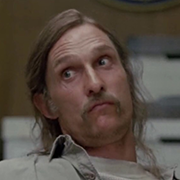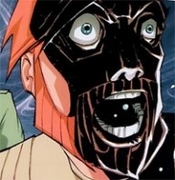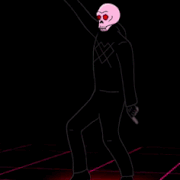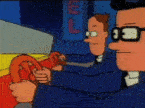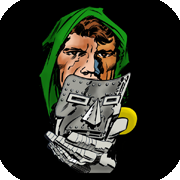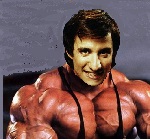|
twistedmentat posted:At least they never forced Shia LaBouf on us in these. God I hate that guy, just an awful, awful actor. The only movie I ever saw him in that the role suited his rat like energy was in Nymphomaniac. He's really good in Fury, which happens to be a good but not great WW2 tank film.
|
|
|
|

|
| # ? May 15, 2024 09:46 |
|
Incredible. I want to tell you all about an incredible series called The Pacific. It's a follow-up to the excellent Band of Brothers, but this time focusing on the Pacific Theater of the war. It primarily follows the story of Eugene Sledge, though it includes other characters such as Merriell "Snafu" Shelton, Edward "Hillbilly" Jones, Andrew "Ack Ack" Haldane, Robert Leckie, and even a brief section on Medal of Honor winner John Basilone. The first three episodes follow Sledge's arrival at Pavuvu in the Russell Islands and then his landing at the small island of Peleliu where he undergoes hell assaulting a beach and then an airfield, before traveling up into the hills in pursuit of an enemy that the American troops have grown to hate with an intensity and savagery that is horrifying to see unfold. It is an astonishing technical achievement, tells a thorough and compelling story about the dehumanizing nature of war, shows the utter barbarity that men were exposed to and that they inflicted on their fellow men, how it broke even the hardest and seemingly unbreakable of soldiers, and how even those who survived were left exhausted, hollowed out and questioning their faith and their basic humanity. It is absolutely remarkable television, and a worthy successor to Band of Brothers. It's also episodes 5, 6 & 7 of the show, meaning we're actually over the halfway point of a series that only FINALLY now feels like it has properly started. I have not exactly been subtle in my critiques of The Pacific, but this trilogy of episodes brings all the many often baffling decisions into a fresh light because now we can see just what the show was capable of all along. The trouble was, they wanted to tell the story of the entire Pacific Campaign, so they didn't feel they could start with Sledge in Peliliu which would mean missing Guadalcanal and Gloucester. But then the first 4 episodes are split so unevenly between Robert Leckie and John Basilone, and the latter feels so detached from the other characters, that the show never seemed to find its footing even when the individual elements worked well. What's the solution? This is an exercise in futility, purely a thought experiment, because the show we got is the show we had, and who knows how a different direction might have been received? But based on everything I've seen so far, my pick would be to drop Basilone as one of the central POV characters. Yes that means you miss out on his astonishing heroics in Guadalcanal, but even that could work with Leckie and his friends in H Company waiting in agony through the night expecting to be overrun only to discover that D Company took the brunt, learning second-hand about Basilone's seemingly impossible feats. That could have even played into Leckie's spiral downwards, the growing frustration among the men about Basilone - only ever referenced, never seen - becoming a larger-than-life American folk hero who people think singlehandedly defeated the entire Japanese army at Guadalcanal. You could still do Iwo Jima by having Basilone suddenly arrive on the scene and perform his heroics before awestruck young soldiers who then face the cold reality that death can come for any of them. Unfair to Jon Seda perhaps, cutting his role down to almost nothing, but the character has been pretty ill-served by the show up to this point and even though the growing discontent Basilone feels in his position as a war bonds salesman/propaganda icon has value from a writing perspective, it also feels like an intrusion on the flow of the otherwise very smooth storytelling present between Leckie's fading out of the frontman position in favor of Sledge (who himself was also screwing with the flow in earlier episode scenes). https://www.youtube.com/watch?v=4jUs8OhLGx0 Like, this is a really strong sequence. I like it! I think it's doing important things character-wise... but it feels so disconnected to what we're seeing in The Pacific, and even if that's kind of the point, it impacts negatively on the flow of the show and continually reminds me how this show often seems to be working against itself. But as noted, it's a thought experiment only. These episodes being great doesn't change that they came too late in the series... but them being too late in the series doesn't change that they're great! Because they are, they really, really are! Watching all three in succession feels like a movie, and I mean that as a compliment. There are three solid acts, character arcs, plenty of action but not for its own sake, and in service of telling the story of the sheer horror and brutality and dehumanization of the war. Minor characters get development time, we see the shift in perspectives happen, the growing bond of characters through their shared trauma and need to survive. There's laughter, sadness, despair and both the resilience AND the fragility of the human spirit all on display, and it never feels overpacked or like these big emotional moments aren't earned. We saw no training for Basilone or Leckie, and only one brief scene of Sledge's mortar training (which he hosed up!), but that partly works in the show's favor this time as Sledge arrives in Pavuvu looking VERY wet behind the ears. He and his fellow soldiers don't exactly get a warm welcome, the Marines aren't anything like the picture of discipline and fighting spirit they were expecting from boot camp and all the excited newsreel coverage, and Sledge in particular looks like a lost lamb as he wanders about trying to find old friend Sidney Phillips. Their reunion is a happy one, but a lot has happened since their last meeting, and Phillips has seen some horrifying poo poo that he simply can't explain to Sledge who asks him for his perspective not out of voyeuristic curiosity but because he's terrified he won't have what it takes when he finally faces the reality of the war. The Marines, veterans of Gaudalcanal or Gloucester or both, are unsettling. Men strip nude in sudden rain to shower, or swing bayonets around in full view of everybody killing imaginary "Japs". Men seem indifferent to rank, are slovenly and lazy, lounging about on their bunks and languidly going about their day. A Master Gunnery Sergeant, "Gunny" Haney, screams obscenities at a superior officer for his poor weapon discipline, and when the Lieutenant turns a stunned look at his Captain, the Captain simply shrugs and points out that Sergeant was right to do so. Sledge, always squared away and taking everything enormously seriously, doesn't seem to know where to look, everything seems to be upside down and round the wrong way from what he was expecting. https://www.youtube.com/watch?v=Mu51rszgotI With an in to Phillips' crew, Sledge gets to briefly spend some time with Leckie, which helps aid the feeling like this is a passing over of the central protagonist role even though Leckie remains a part of the series. Leckie and Sledge have an interesting conversation about religion, with Leckie - only so recently returned from his hospital stay - still somewhat burned out and a far cry from the man who went to Church every Sunday and made sure to go the day he enlisted so he could say a prayer for those who died in Pearl Harbor. Sledge is a believer and isn't remotely shaken by Leckie's challenges to God's divinity, and you can tell that while Leckie might feel Sledge won't maintain that same faith after he sees war firsthand, he also envies that Sledge still has it. Leckie has also often carried himself like he feels like he is the main character of the story of the world, a novel he's writing in his own head. After Banika, that has been shaken somewhat, and I think it's in Episodes 5 and 6 where he finally - for now at least - comes to the rather disheartening revelation that the story goes on without him, and that he isn't the central character. He and Sledge both make landings at Peleliu, they both fight their way forward, they both suffer from the debilitating heat and the desperate need for water. Leckie, disgusted with himself but too worn down to let it hold him back, searches the dead bodies of his fellow soldiers in hopes of finding canteens that still have water. Sledge joins other excited soldiers who think they've found water, only to discover the head of an animal dumped inside by the Japanese army to poison any water the Americans could find, further enraging the men against the monstrous "other" that is the Japanese. Leckie sees Hoosier badly hurt and carried away, unsure if he's alive or dead. When his friend Runner also takes a bad hit and their radio operator is killed, Leckie is tasked with finding a working radio to call in a corpsman and finds himself facing the horror of running back through the warzone he just crossed as soldier after soldier died around him... and then having to come back. But he does it for his friend, only to be blasted unconscious by the concussive force of an artillery shell explosion. He wakes being loaded onto a boat, coughing up blood as doctors and nurses treat the wounded. When he belatedly discovers that Runner survived and ended up on the same ship, he's happy of course but also devastated, because he "failed" to save him. I don't mean that in an accusatory way towards Leckie, because he didn't want to save his friend to be a hero, he just wanted to save his friend... and he didn't. He failed. Runner was saved but it wasn't because of him, and that means for Leckie that he wasn't there for his friend, he wasn't able to do the one thing he promised to do. When Runner wheels him up onto the top desk and they stare out over Pavuvu as they're sailed away, their war appears to be over... but the war continues. It's got to be a heady mixture of relief, guilt and confusion: they have put so much into looking out for each other, of being the guys there to fight the Japanese and avenge America for Pearl Harbor, and now they're being sent away, and neither of them knows if Hoosier is alive or dead or even somewhere on the same boat. They're heroes in America, they've done things many men would never be able to do (and should never HAVE to do), and they have more than done their part... and yet, the job is undone, and they're going home. That has to gently caress with a person's head. As an exit for Leckie, it's incredibly well done. He isn't done with the show, and I'm not saying he should be, but looking at these three episodes as their own thing, this feels like such a strong exit. https://www.youtube.com/watch?v=TsYgW64Dt7g But as Leckie's story "ends", Sledge's is just beginning, and it's incredibly effective in how its all laid out. From a fantastic quasi "single" take of Sledge arriving on the Peleliu beach (there are some clear edit points but it still looks and sounds great) all the way through to reaching the edge of the airfield and then the eventual assault on it is only really matched by Saving Private Ryan's amazing depiction of the D-Day Landings. Sledge acquits himself well, but the show makes it clear that he's utterly terrified the entire time and forcing himself forward every step of the way. He openly admits after the assault is over that he has never been more terrified in his life, and Captain "Ack Ack" Haldane very gently lets him know that they all are. Haldane is a character I wish had been seen from the start of the show, given he also served in Gaudalcanal and Gloucester, and he makes one hell of an impression in these episodes in his firm, obviously disciplined but also compassionate leadership and the obvious admiration all of his men - including the hard-bitten Gunny Haney! - hold him in. He kindly helps a soldier on the verge of a nervous breakdown get some rest, he gives troubled soldiers like Sledge basic tasks that take their mind of the chaotic mess in their minds after their first experience of war, and a particularly harsh one at that. After the misery of taking the airfield, Haldane looks out for his men first and foremost, further deepening their respect and trust in him when he and his right-hand man block an APC and all but hold the driver at gunpoint as they tell (not ask, TELL) him to load up their injured before he goes anywhere. https://www.youtube.com/watch?v=h4fjzWUO1B8 Part of the issue with the series up to this point has been the lack of a sense of the wider company beyond the small group of friends for the central POV characters of Leckie and Basilone. With these three episodes, we not only see Sledge getting bloodied in his first battle, but also the developing relationship between him and his fellow soldiers - particularly Snafu - as well as importantly showing the structure of the company with Captain Haldane, Lieutenant "Hillbilly" Jones and Gunnery Sergeant Gunny Haney. You get a sense of structure, of how things operate, of showing the importance of the mortarmen in helping to clear out opposition or dampen resistance enough for the riflemen to get through. You also, importantly, see how everybody holds up when that structure is lost, and how the bonds formed in battle help the men make it through when they lose Hillbilly, they lose Haldane, and though he's still there how they see Haney crack. Haney himself symbolically passes the torch of the 1st Marine Division to Sledge by giving him his lighter as they stand smoking on the deck of their ship near the end of episode 7 as they finally put Peleliu behind them. Sledge, who showed up in episode 5 squared away and politely declining to smoke, ends episode 7 smoking, harder, battle-tested but also still holding onto a sense of himself. Sidney Phillips, visiting Sledge's parents, tried to put their minds at ease by saying the mortarmen are always behind the frontline and that he was surrounded by the finest soldiers. Both those things were technically true, but he also knew that Sledge was doing to be facing danger and terror like he'd never experienced before, and nobody knows how they will react until they face it. Sledge, it seemed, passed the test, putting aside his note-taking for a moment as he does something he would have never remotely considered when he first arrived on Pavuvu, stripping naked and joining his fellow soldiers for a swim in the ocean, perhaps finally understanding the attitudes and appearances of the Marines who were nothing like he expected when he was dreaming of serving his country but trapped in the cotton wool of his family home. Then there's Snafu. Rami Malek was a known quantity when he starred in this show, though he wouldn't really take off as a big star until 2015 and Mr. Robot. But even with the benefit of hindsight, Malek stood out even when he was just "that Pharoah dude from Night at the Museum", and his role as Snafu is remarkable if only for the fact that he seems to appear fully formed and with a well-defined character despite making his first appearance in episode 5 and in place as just one supporting role to the co-lead who himself was getting his first full proper episode. Part of what is remarkable is that Snafu does some incredibly hosed up things and yet he does them so... matter-of-factly. Gunny Haney is all about bluster and presenting the image of the epitome of a US Marine. Haldane is the caring, big brother of a Captain. Hillbilly his shadow who struggles with his own self-doubts when left in charge (the unintended killing of a panicking soldier clearly impacts him deeply, even though not a single one of the soldiers blames him or holds it against him). Other soldiers hate the Japanese, they mutilate their corpses or rob them, one even trying to extract gold teeth from a still barely living soldier without the slightest compunction. Snafu, meanwhile, is a laidback and sardonic presence who amuses people, makes them laugh, cracks jokes and appears entirely relaxed with his place in the world and the war... and then suddenly he'll just go,"Oops, almost forgot!" like he left the water boiling, and casually extract gold teeth from a corpse, or happily plink away at the exposed brain matter of a dead Japanese soldier with pebbles to pass the time. He does this all without malice or rage, or even callously. It's purely functional, the dead Japanese don't need the gold in their teeth anymore and he can sell it and make money after the war... it just makes sense! But he also holds a sense of right and wrong - he and the other soldiers are disgusted by a non-combatant who offers to pay for Japanese blades or a flag so he has something to "show" for being in the war. He kills the barely alive Japanese soldier being tortured by an American not because he feels any sympathy for the Japanese soldier, but because the torture is clearly upsetting his friend Sledge, and offers a simple,"Makes it easier" explanation for this "mercy". But he also clearly knows that there is a line he has crossed, even if he did it without malice. After Haldane's death, a distraught Sledge who tossed aside the Japanese blade he was considering looting when he saw human bodies being desecrated is prepared to rip gold out of the teeth of a corpse just to find some outlet for his rage and grief. Snafu, tossing pebbles into the brain-matter soup of another corpse, warns him not to do it, and when Sledge quite justifiably asks why he shouldn't, Snafu knows that saying it is "wrong" won't hold water. So instead he simply declares that the doctor mentioned the Japanese have "germs" and so you shouldn't touch their dead bodies. Sledge knows this is a bullshit excuse, but it's enough to give him pause, and instead he snarls that he plans to take the soldier's insignia instead. Snafu has no issue with that, because he's kept Sledge from crossing a line, one that he has crossed multiple times himself. But while he may not have faith (I don't believe he ever makes a statement one way or another) he clearly knows that Sledge does, and that some things - even things that Snafu himself can do seemingly without issue - would stain the soul of a man like Sledge. The show isn't all relentless brutality, of course, and there are light moments and fun moments where the men are able to relax, laugh and forget their fears and stress for a moment - their bewildered, delighted reactions to Gunny Haney going,"WOOF!" directly in Sledge's face and then moving on comes to mind! But, importantly, death and dehumanization are a constant presence even during these light moments. Because they're on islands, the enemy is all around, often in areas they thought had already been cleared, there's not enough room to move the dead and not the space to move them in any case. The scene where Haldane's body is brought down from up in the hills stands out to me so much because they're surrounded by dead bodies the entire time they're there, but they've become part of the background and all but forgotten by the soldiers until suddenly a death catches them all by surprise, and all stare in stunned silence as Haldane's lifeless body is carried past them, as if seeing a dead body (or rather, THIS dead body) is something they were completely unprepared for. Even scenes like the below, where Jay De L'Eau shits himself and is lighthearted fun, is a scene preceded by Jay having a near breakdown and crying in Sledge's arms at night, and involves another human being getting shot full of bullets and killed as he was chasing a terrified young man while intending to murder him. And yet, the lightness works, because these are human beings and they need to find ways to keep their spirits up, even if the environment and their own actions lend everything a definite morbid touch. https://www.youtube.com/watch?v=Bt5rFdmnJUs This has been a pretty long post, because it's been 3 episodes. But it really does feel like a movie, with each episode it's own act, and feels like it is worth writing about all together. It completely flips my feelings about The Pacific around. I'm still irritated by the irregular nature of the series up to this point, but these three episodes back-to-back demonstrate that old Band of Brothers magic while producing something spectacularly different. It's a reminder of what could have been, just how good the series could have been but never quite managed to reach. Here though, for these three episodes, this show was every bit the equal of Band of Brothers. Jerusalem fucked around with this message at 13:43 on May 2, 2024 |
|
|
|
Hell yeah that's the good stuff.
|
|
|
|
I've been rewatching Band of Brothers, and as always, i noticed new stuff. Like Hall, the guy who joins Easy to take the German guns, thats Moriarty from Sherlock. But the main thing I noticed is everyones always going "Has anyone seen Lt Meehan?" and unlike the members of Easy, the audience knows what happened to him. The last you see of him and his plane, is him going to Simon Pegg who needs to do something for him, but then it cuts to the plane getting it, and its the one that goes down in flames. I had never noticed that before. Though I have a few questions, first, what was in that mystery bag they spring on them at the last moment? I googled around and all i could find was the contents of their regular bag. Though a question I've always had, what is Nixons job? He doesn't lead troops, he is pretty much shown just advising and observing. I always figured he is either the supply or intelligence officer. Another thing I realized that the aid station in Bastonge, the destruction of it is summed up with the nurses headwrap, but you then realize, everyone who was in there was dead. All the soldiers who were wounded, from the ones that were near death to the ones that were just wounded in a way that just meant they couldn't fight, all gone. It's also making me realize why the Pacific and even more so Masters of the Air, failed. They tried to tell too many stories. This one show couldn't just tell a single story in a global spanning war, but it had to be the story of that war. Trying to do too much, and then just loosing focus on the story they wanted to tell. As was said in an earlier post, there's 2 hang out episodes of the pacific, both centered on Leckie, and they come way to quickly. You barely know this guy, he's a bit of a jerk, thinks he's smarter and everyone, but you don't get the sense he's really been through hell, even though in reality he had been. No, they wanted to tell the story of US servicemen in Australia and so we needed an episode devoted to that. But they also wanted to show how mental illness was handled by the US military, so thats an episode. And we need to get another episode of Bastilone back in the US to show how being a hero is empty and he longs to get back into the fight even though he gets to bang Anna Torv on the reg. Masters of the Air does start strongly, with a focus on bomber missions and the drama of the flight there and back, but then it decides its about POWs and then the Tuskegee Airmen.
|
|
|
|
twistedmentat posted:Though I have a few questions, first, what was in that mystery bag they spring on them at the last moment? I googled around and all i could find was the contents of their regular bag. Though a question I've always had, what is Nixons job? He doesn't lead troops, he is pretty much shown just advising and observing. I always figured he is either the supply or intelligence officer. What was in the leg bag? Let Joe Toye explain: https://www.youtube.com/watch?v=RCFW25L3U8Q Tldr the airborne had an extra heavy load for the Normandy jump because they were expected to fight for an extended time without resupply. Lots of troopers lost these bags which is why so many didn't have rifles or equipment when they landed. The Market Garden and Varsity drops fared better after they corrected for this, which you can see in the 4th episode when the Normandy vets show the replacements how to jump ready to fight. Nixon is an intelligence officer, yes.
|
|
|
twistedmentat posted:I've been rewatching Band of Brothers, and as always, i noticed new stuff. Like Hall, the guy who joins Easy to take the German guns, thats Moriarty from Sherlock. But the main thing I noticed is everyones always going "Has anyone seen Lt Meehan?" and unlike the members of Easy, the audience knows what happened to him. The last you see of him and his plane, is him going to Simon Pegg who needs to do something for him, but then it cuts to the plane getting it, and its the one that goes down in flames. I had never noticed that before. He was the S-2, or intelligence officer. While I was doing a fact check, I saw he became the operations officer after Market Garden. And yeah, I was stoked for MoA to be about you know, the bombers, and then it became a POW show. I've said before ITT it was kinda cool to get a POW story since it hadn't been done in probably decades, but I thought this was going to be about the bombers. I'm sure many posters excited about MoA played the 2000 game B17 Mighty 8th, did anyone else play the 2002 Codemasters game Prisoner of War? You were a bomber crew member that got shot down and ended up in POW camps and had to sneak around to gather stuff in order to escape.
|
|
|
|
|
Never played Mighty 8th but I did have Warbirds back in the 90s and I was pretty terrible flying the bombers.
|
|
|
|
twistedmentat posted:I've been rewatching Band of Brothers, and as always, i noticed new stuff. Like Hall, the guy who joins Easy to take the German guns, thats Moriarty from Sherlock. But the main thing I noticed is everyones always going "Has anyone seen Lt Meehan?" and unlike the members of Easy, the audience knows what happened to him. The last you see of him and his plane, is him going to Simon Pegg who needs to do something for him, but then it cuts to the plane getting it, and its the one that goes down in flames. I had never noticed that before. The mystery bags were "leg bags" and were a last minute suggestion by the British: https://www.101airborneww2.com/equipment3.html scroll down to legbag Idea was that it would dangle below the paratrooper so that it would hit the ground before the soldier, therefore reducing the odds of getting hurt on landing.
|
|
|
|
The POW episodes aspect makes more sense when the book the show is based on covers a wide spectrum of the Allied pilot experiences in Europe. The scope of it is way bigger than say Band of Brothers. If you wanted to faithfully put the book on TV it would probably need at least 20 episodes. And thatís probably the main fault with Masters of the Air (and The Pacific). They tried to cram too much into 9 episodes. BoB worked because the story gave them room to tell the story and build characters from training then June 1944 - April 1945. Iím also thankful MotA didnít cover a story from the book of a B-17 pilot who had to make an emergency landing in Switzerland and ended up in a Swiss POW camp and was CW: brutally raped by Russian prisoners multiple times so badly it caused him physical trauma. I wonít say more than that but itís loving horrific. The Swiss were neutral but leaned heavily to the Nazis. The Swiss Airforce even flew BF-109s. The camp commander was sympathetic to the Nazis and refused to do anything to alleviate any of the barbaric conditions the POWs were experiencing. e: Itís also unfortunate MotA didnít cover training because more than 13,000 B-24 and B-17 pilots died during training. Thatís insane. Space Jam fucked around with this message at 07:12 on May 9, 2024 |
|
|
|
In training???
|
|
|
|
Would anyone know of any decent docos about operation varsity? Or books? Surprised thereís not as much fan fair about it considering it was the biggest airborne drop of the war.
|
|
|
|
joepinetree posted:The mystery bags were "leg bags" and were a last minute suggestion by the British: God, its amazing the British did as well as they did before the Americans showed up. Their entire conduct of ww2 was disaster outside of North Africa. Oh lets invade Italy, the soft underbelly of europe *grueling mountain warfair that basically gets forgotten in favor of D-Day*. Oh well, that didn't work, well, we're on the continent, Gerry must be on his last legs, just old men and boys, tanks don't have any ammo or fuel, lets attack through Holland to get across the Rhine easier. Don't show me all the intelligence that shows that its defended by Panzer Divisions and eastern front veterans, we say its old men and boys, its old men and boys. Obviously these where something that was thought up without thinking about practical applications, as all accounts say they were torn off during the jump, either by the planes slipstream or the shock of the parachute opening. Oops. That's kind of a over simplification of it, but its hard to say the British conducted the war in this really weird way, that it was just a matter of time before they won simply because they're British and have a can do attitude. skooma512 posted:He was the S-2, or intelligence officer. While I was doing a fact check, I saw he became the operations officer after Market Garden. Ah okay. I never get these American letter/number designations that are used. It makes sense he was the intelligence officer based on how he is shown during the show. He's always looking, paying attention and making inferences on the information he gathers. Probably also the kind of job a Rich Kid gets in the army. If it was its own show, a POW story would be interesting, but the bombing stuff just suddenly takes a backseat once that takes over. I don't think we see any bombing missions in the back half of the show?
|
|
|
|
twistedmentat posted:That's kind of a over simplification of it, but its hard to say the British conducted the war in this really weird way, that it was just a matter of time before they won simply because they're British and have a can do attitude. Well I mean, they did a lot of stuff REALLY WELL. Their military intelligence and code breaking people were incredible and ran rings around the nazis. They also had really skilled air force pilots, and their work during the Battle of Britain is rightfully still hailed as some of the best aerial campaigning of all time. They also pioneered the use of commandos and special forces in a way that's still felt to this day. And of course, with a few exceptions, the Royal Navy also did some sterling work during the war. You're not wrong though. I think they were kind of caught with their pants down when the war started. The British army was quite small and had really bad equipment in many ways (their tanks for instance were comically poo poo). Then their first attempts to defend France with the French went completely pear shaped and they lost most of what little equipment they had in the mad dash for the coast and the rushed evacuation. And then they had to scramble. They also suffered heavily from their pre-war (and even during-war) officers largely being people who had gotten those positions through connections and their last name, rather than any actual skill at commanding men. This improved during the war as they started replacing large adult fail sons with actually capable officers, but never really got fully fixed. And probably still hasn't even to this day. I think they, like many others, were also caught unprepared for what modern war in the 1940s was actually like. They had planned and trained with a set of assumptions that didn't turn out to really hold a lot of water, and then had to test those theories against an enemy who -- for all their own failures and Hitler's lovely leadership -- were fighting a whole new kind of war at least in the early years. In contrast, because the United States didn't really enter the war in Europe until much later, they got to react and adapt to it for several years before actually putting boots on European soil. Also I'm not entirely sure what you mean about Italy, the Allies (as in the Americans and the British) both invaded Sicily and then the Italian mainland together in 1943. And I'm also not entirely sure what you mean about Holland. I assume you're specifically talking about Operation Market-Garden, which was indeed something of an command failure. Intelligence had picked up German units in the area and apparently photographed German tanks in the area, but those reports never fully made it down the chain for whatever reason. And the idea that the German army was on its last legs was not some kind of British invention, it was generally shared by the entire Allied leadership. Prior to Market-Garden Patton famously said that if they gave him 400000 gallons of gas, his tanks could be in Berlin in two days.
|
|
|
|
Arc Hammer posted:What was in the leg bag? Let Joe Toye explain: https://en.wikipedia.org/wiki/Headq...ain?wprov=sfla1 Intelligence officer early part of the show, first battalion then regimental level. Knocked out of the regimental Intelligence shop due to his drinking problem to the battalion operations shop.
|
|
|
skooma512 posted:He was the S-2, or intelligence officer. While I was doing a fact check, I saw he became the operations officer after Market Garden.
|
|
|
|
|
Lampsacus posted:I didn't realize he became an operations officer, so i'm still learning new things about BoB too huh. Also, i think one of my favourite things about MotA is that, for the briefest few seconds, we got an Eastern Front BoB show : p https://youtu.be/_5Ocz04H8EY?si=1eZEt48zfJt-U7cQ
|
|
|
|
yip can almost quote that scene off by heart like everybody else whose seen this show a billion times. but in my mind he was just demoted to a lower ranking officer. re: eastern front, https://www.youtube.com/watch?v=zP_Z7Li3VM4 i love this and i wish we will get a full 10 parter of the eastern front one day (impossible dream)
|
|
|
|
|
twistedmentat posted:God, its amazing the British did as well as they did before the Americans showed up. Their entire conduct of ww2 was disaster outside of North Africa. Oh lets invade Italy, the soft underbelly of europe *grueling mountain warfair that basically gets forgotten in favor of D-Day* 1. Italy and their navy was knocked out of the war, the Germans had to transfer troops to garrison Greece. Also the western allies were under pressure to attack somewhere in 43, and France was out of the question. 2. Regarding intelligence, itís always easy in hindsight to find evidence why or why not something is a good idea. The Dutch resistance was thoroughly comprised, so allied intelligence didnít trust them. 3. The drop in Normandy was a shitshow, primarily cause the transports were to low and fast. As I recall the British drop on the left flank was better executed. vuk83 fucked around with this message at 14:50 on May 9, 2024 |
|
|
|
The US also benefited from the British experience. They could sit back, watch how German tactics played out and figure out a counter for Blitzkrieg. Also, by the time American forces were in Europe the luftwaffen was shredded. The German army couldn't show it's face in the daylight without risking being shot up by roving P-47's.
|
|
|
|
Darth Brooks posted:Also, by the time American forces were in Europe the luftwaffen was shredded. The German army couldn't show it's face in the daylight without risking being shot up by roving P-47's. Wondering when that happened. Maybe they used the bomber groups as bait to draw out the Luftwaffe into fights? Maybe they altered fighter tactics to sweep airfields ahead of bombing raids? Maybe they could mention this as an episode closing stinger and then start the next episode with all that poo poo resolved offscreen.
|
|
|
|
Whoa, you finally woke up. While you were asleep, we finished our ferry flight to England. We bombed Germany a few times, destroyed the luftwaffe, and now we're all in a POW camp. I'm the next 9 episodes we'll explore...
|
|
|
|
I prepared a whole evening to finally getting into masters of the air. The lady was out for the night, cooked myself a nice solo dinner, got comfy on the couch, turned the volume up, smoked a bowl. I've managed to really avoid any information whatsoever about the show other than the fact that it exists. Haven't watched any trailers or promos, haven't googled anything, really wanted to just give it a shot with no expectations, purely on its own merits. Halfway into the first episode I had to stop myself from fast forwarding. The second episode ended with me flipping the bird at my TV and wondering what bizarro world I woke up in where austin butler is considered a good actor. I haven't seen him in anything else but he suuuuucks in this. the other ostensible lead isn't any better. I can't even really put my finger yet on exactly why I dislike this show much beyond the abysmal lead performances but after 2 episodes I am the opposite of sold and will likely not ever continue watching. I wanted to like it 
|
|
|
|
|
It isn't bad when they're in the air (some of the sequences are absolutely harrowing, even if the CGI is flakey in parts), but everything else is pretty sub-par.
|
|
|
|
Yea, sorry I shouldn't make flippant posts when its 7am with 4 hours sleep about major historical topics. That being said, specifically Italy, wasn't that Churchills big thing, that they could invade Italy and just keep going into Germany across the Alps i guess? Yes they were right that the Italians couldn't hold up, but they kind of forgot that Italy is pretty much entirely difficult terrain and the Germans are really good at defenses. I could see them figuring Germany wouldn't fight tooth and nail for it, but that still seems like they expected the best. Though whether that grueling meatgrinder of a front was due to a lot of men and materials being moved for Normandy, I can't say, but I think the historical consensus is that the whole "Soft underbelly of Europe" was not exactly true. As with Market Garden, its very possible that lectures from 20 years ago and books read at the same time have combined with the pop culture versions of it, but I'm pretty sure the intelligence didn't make its way up because no one wanted to rock the boat? That this was Monty's big plan and no one had the guts to tell him that this was a disaster waiting to happen. That the Old Men and Boys they were expecting were far from that. But even then, as with Italy, they should of planned to face the kind of resistance they did. Not just assume it was going to be a walk in the park. And its not like the British didn't assume this kind of stuff in WW1, I think it was the somme where they had all the troops going over the top take their full packs and walk across the no mans land specifically because they just assumed that the bombardment of German lines was going to kill all the Germans, so why worry about them? Though a funny thing about the old men and boys, is that was going to literally all Germany would have soon. Volkstrum were 16-17 year olds with men over, i think 45. Though even then I don't think the Western Allies went up against them, most of them ended up facing the Russians? And I also want to just say that yes, I know the British were effective, and their experience and knowlage of German methods of war helped secure victory in the west, and that wasn't gained due to a bunch of old out of touch aristocrats pushing figures around a table assuming that a stuff upper lip is all that was needed to throw back the hun. As was said, the Battle of Britain was an insane defense of the home islands, they endured massive hardship due to blockade and held out against what must of looked like certain doom from across the channel. Not to mention excellent commandos and other specialized units. Hell even the Royal Navy realized sending ships against the Bismark would end with another Ark Royal, so they send torpedo bombers to attack it, and only moved in with the big gun battleships when they knew it was safe. I think maybe the success of Normandy and the relative ease of it meant that Germany really was barely holding on and Market Garden would work, but they ignored the whole "hope for the best, prepare for the the worst" thing.
|
|
|
|
The best part about the Battle of Britain is that Dowding and Park both got sidelined afterwards thanks to assholes like Mallory when Dowding's intercept system was the thing the ultimately saved the campaign.
|
|
|
|
My understanding is that the Brits were the ones to push really hard for Italy and the Americans eventually gave in. Iirc the decision to invade mainland Italy wasn't made final until like halfway through the Sicily campaign although I think everyone pretty much knew it was inevitable after Sicily if they were going to take Sicily. There was a lot of opposition to Sicily as well but they needed something to do until they could invade cross channel because they didn't want the Soviets to be the only ones fighting and hoped to take some pressure off them.
|
|
|
|
|
ilmucche posted:In training??? With the technology at the time, taking off and especially landing was still very difficult and risky. Even a fairly minor miscalculation during a landing could easily end up being fatal. It was a tricky thing at the best of times, and would have been far more dangerous when trying to push through new recruits under accelerated timelines while also having to deal with mechanical problems of new plane designs. IIRC even outside of training as many as a third of overall WW2 aircraft losses ended up being due to accidents without enemy action. The Luftwaffe in particular had a lot of losses from accidents towards the end of the war, from a combination of over-engined fighters that were difficult to handle and a rapidly dwindling supply of experienced pilots.
|
|
|
|
Taking Sicily made shipping in the med vastly easier and made enough shipping freed up to go to France later. Knocking Italy out of the war also forced more German divisions to defend a lot longer coast line, in the Balkanís too. Gave good practice for d-day and US army units too.
|
|
|
|
10th Mountain Division had to fight somewhere.
|
|
|
|
After watching The Last Patrol, i don't think i hate it anymore, mostly because as i said before, its not on all the time. I think my least favorite episode is the Blythe episode because he's just not that interesting. Oh he's a bit of a coward? Who cares. He just kinda sleep walks though most of the episode. Moving the focus off him wouldn't really change the plot of the episode, you just loose him looking dead eyed and mumbling a lot. Anyways, something else I noticed, Cobb is the worst. Like, he's always getting mad at people on behalf of the regiment, and when he doesn't see a reason, he goes looking for one. But in the field, he's always a fuckup. Its not his fault he got hit on the way over the Normandy, but in Market Garden, he cowers behind a wall, and then he's the one that capsizes the last boat. And then in morning he's all "Did we leave someone behind?" in this tone that's all "oh you fuckers left one of us behind didn't you? I, Cobb, will call you for for this grave injustice". Its pretty great when Martin tells him to shut the gently caress up.
|
|
|
|
"Are you siding with him?" "...yeah. Yeah I am." I feel for the guy, because he clearly (as portrayed in the show at least) felt the disconnect between himself and men that he'd bonded with in training. But while they seemed to find a way to adapt to the realities of war it seemed like he never got a grip on it, and he couldn't understand why or how come people he had such a strong shared history with had somehow become strangers even though he was largely present for much of the same things they were.
|
|
|
|
Arc Hammer posted:Wondering when that happened. Maybe they used the bomber groups as bait to draw out the Luftwaffe into fights? Maybe they altered fighter tactics to sweep airfields ahead of bombing raids? The Luftwaffe got smashed up in the Battle of Britain and then again attempting to resupply the Africa Corps and then again trying to resupply the Stalingrad pocket all while fighting the Soviet Air Force and the UK/US bomber raids. It was just constant attrition combined with Goering promising the Luftwaffe could do things it couldnít resulting in constant losses of planes and experienced pilots they could never hope to replace fast enough.
|
|
|
|
Oh I'm aware of all that, but this thread was originally for the show Masters of the Air. One episode ends with Rosenthal staying on for a second tour of duty and he's told that, in order to win, they'll need to defeat the Luftwaffe, and doing that means using bomber formations to bait them into pitched battles with the fighter escorts. So it looks like the show is setting things up for a big confrontation next episode, right? Then the next episode airs and the Luftwaffe has mostly been dealt with offscreen so we can get back to whatever less expensive groundside drama is going on.
|
|
|
|
That wouldn't of explored Relationships or whatever the hell the showrunners felt the show was actually about.
|
|
|
|
ďBeen a long time since your last shower, Professor?Ē Cobb loving sucks.
|
|
|
|

|
| # ? May 15, 2024 09:46 |
|
Notice despite living through the war, and being at Bastogne, Cobb doesn't get a "After the war he did this" because no one gave a poo poo. Apparently, irl he drunkenly assaulted Lt Foley and was court marshaled, but wasn't shipped back to the US until after V-E day. Though according to the Wiki i found, Webster described him as good natured. Its funny how much screen time Tom Hardy gets in the last two episodes. Someone saw something in him. Also Michael Fassbender as Christiansen has a lot of screen time as well, so probably the same thing. Funny thing, up until recently, a friend of mine though that Webster was played by Paul Rudd.
|
|
|



